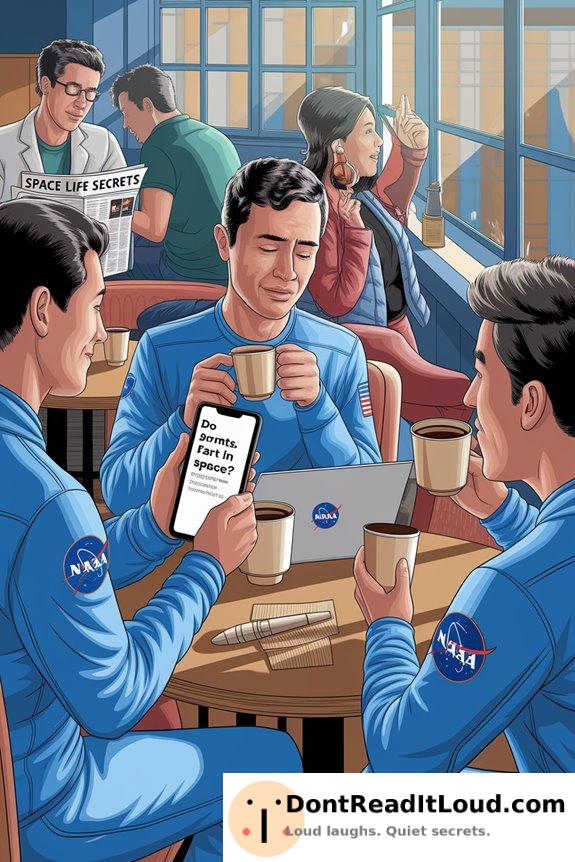
Yes, astronauts can and do fart in space! In zero gravity, gas doesn’t separate easily from other contents in your gut, which can feel uncomfortable. The smell also lingers longer in the confined quarters of the space station, so air filtration is especially important to keep the environment fresh. Astronauts pay attention to their diets to help control how much gas they produce. These daily details highlight some of the unique challenges of living above Earth.

Although you might picture astronauts as space heroes, their lives involve much more than just floating in zero gravity. You may imagine the excitement of missions, breathtaking views, and the sensation of weightlessness. However, everyday bodily functions, like farting, also play a surprising role in space. The reality is that astronauts do fart in space, and it’s a bit more complicated than on Earth.
Gravity on Earth helps gases move through your digestive system and escape easily. In zero gravity, the lack of gravity means gases don’t separate from solids and liquids as they do at home. Instead, everything inside your body—solids, liquids, and gases—floats together. When astronauts eat, drink, or swallow air while talking aboard the International Space Station, their digestive systems still function but can’t depend on gravity to help.
Gas buildup still happens, but it can mix with other contents in the digestive tract, making burping potentially messy. That’s why astronauts must be cautious; trying to burp might lead to a “wet burp,” which is uncomfortable and inconvenient in such a confined space.
On a space mission, farting can be more serious than just embarrassing. Because the space station is sealed, gases released—including farts—tend to linger longer than on Earth. Air filtration systems help reduce odors, but their capacity is limited. Some gases in farts, such as methane and hydrogen, are also flammable at high concentrations.
For this reason, NASA engineers design ventilation and filtration systems to keep the air safe aboard the station. Astronauts’ food is chosen not just for nutrition and taste, but also for how easily it digests and how much gas it produces. High-fiber foods can cause more gas, so mission menus are carefully planned to minimize problems.
Still, it’s impossible to prevent gas completely. Astronauts learn to handle these situations discreetly, knowing that normal bodily functions continue, even in zero gravity.
Conclusion
So, now you know—astronauts really do fart in space! Even with advanced suits and special diets, bodily functions continue as usual. Passing gas in space may not be glamorous, but it’s just another part of life beyond Earth. Next time you gaze at the stars, remember astronauts handle everyday human moments too, just floating in zero gravity!



